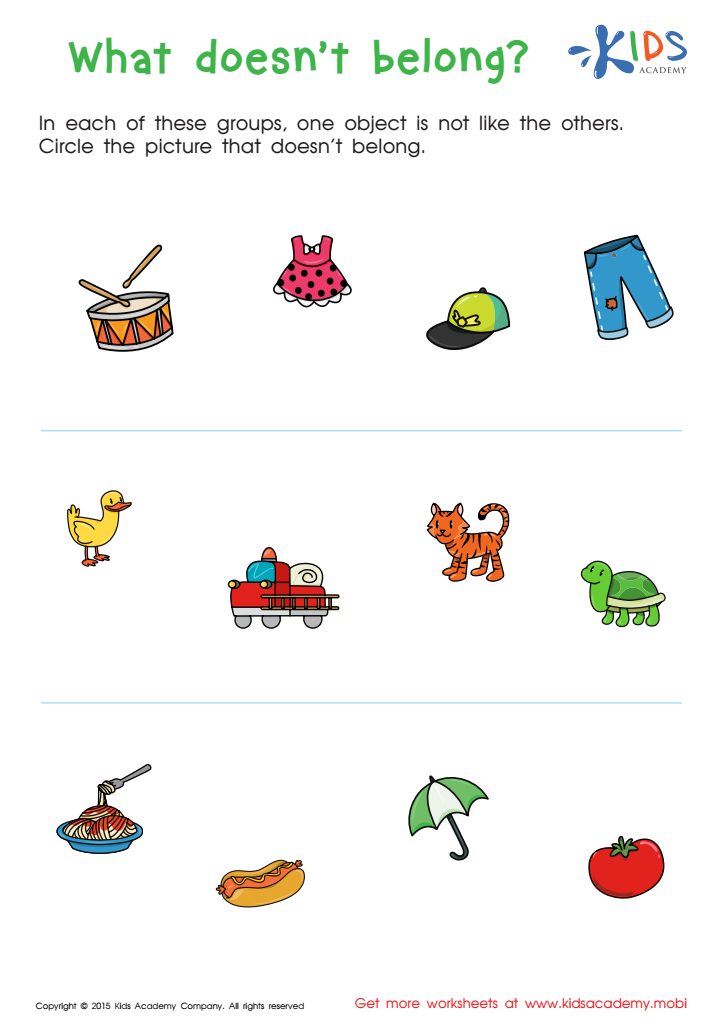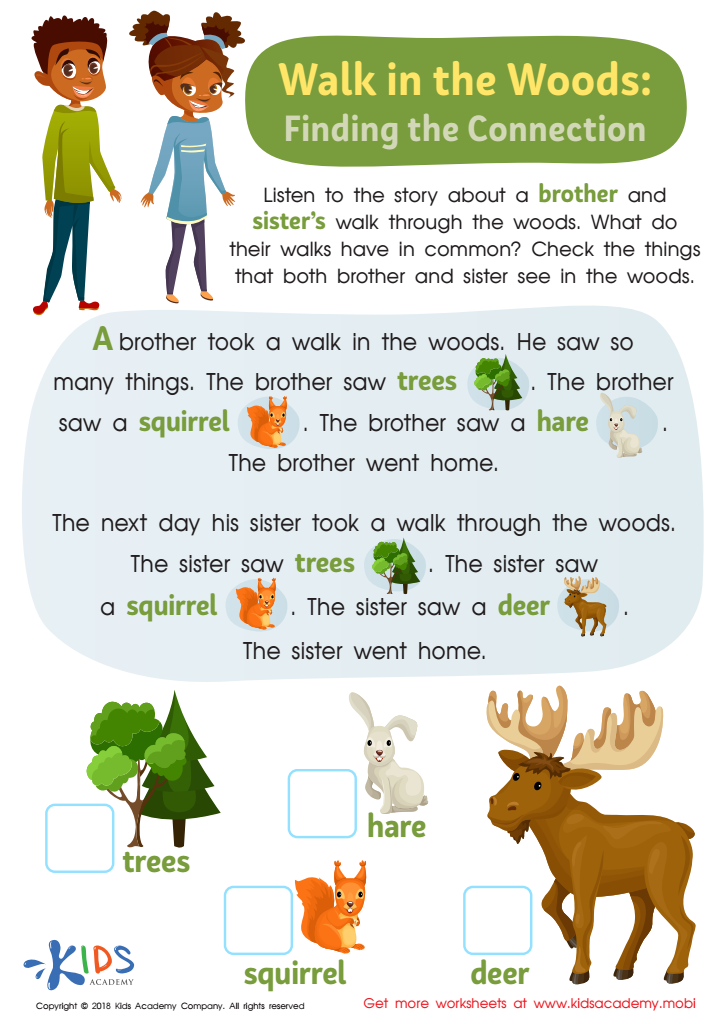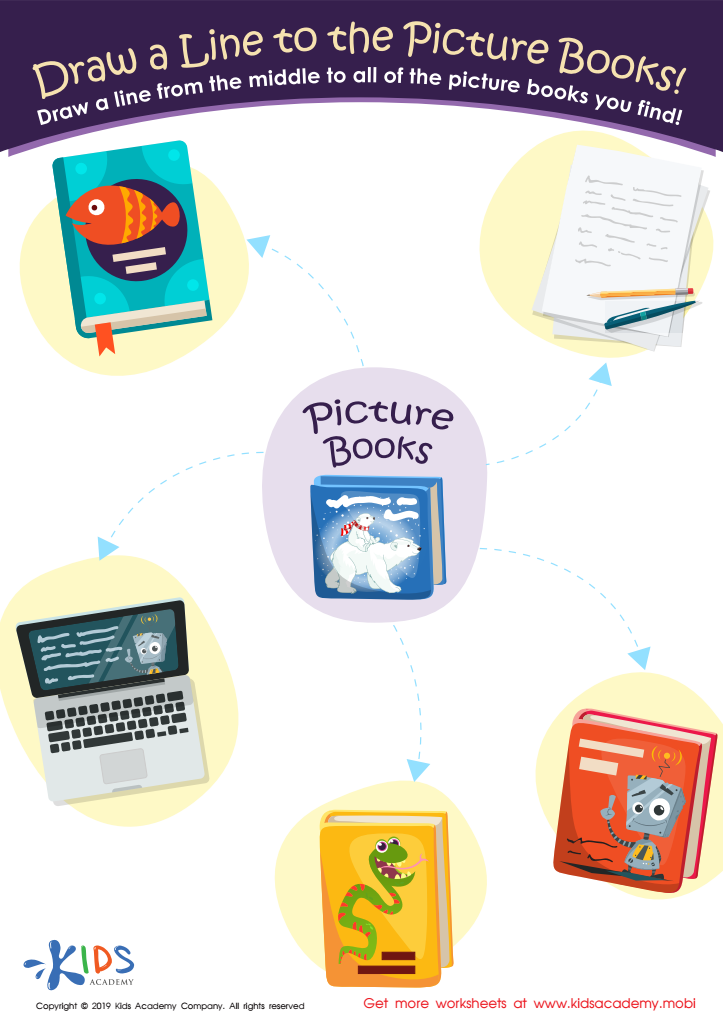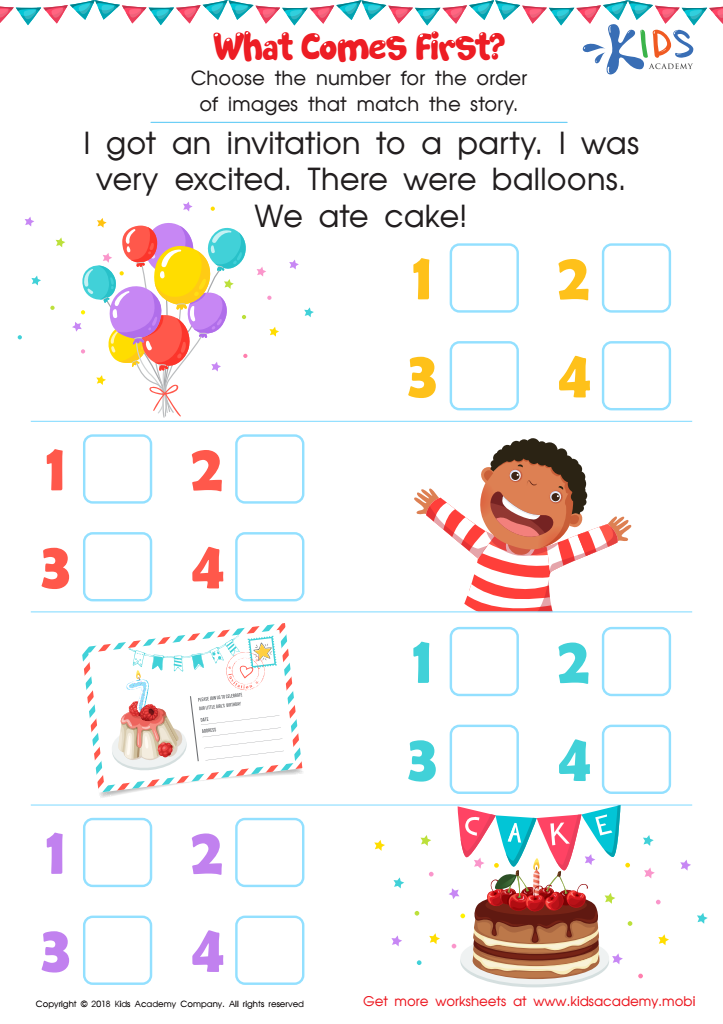Logical thinking Normal Reading Worksheets for Ages 5-6
4 filtered results
-
From - To
Boost your child’s cognitive abilities with our Logical Thinking Normal Reading Worksheets, specially designed for ages 5-6. These engaging worksheets aim to enhance critical thinking skills while making learning fun! Featuring vibrant graphics and interactive exercises, kids will enjoy solving puzzles, identifying patterns, and answering comprehension questions. Our activities encourage creative problem-solving and foster a deeper understanding of reading material. Perfect for homeschoolers or classroom settings, our worksheets align with early learning standards, ensuring your child develops essential skills for future academic success. Download now and watch your little one flourish in both reading and logical thinking today!


First Words: What Doesn't Belong Worksheet


Walk In the Woods: Finding Connections Worksheet


Draw a Line to the Picture Books Worksheet


What Comes First Worksheet
Parents and teachers should prioritize logical thinking and normal reading skills for children aged 5-6, as these are foundational abilities critical for future academic success. At this developmental stage, children are naturally curious and eager to make sense of the world around them. Enhancing their logical thinking fosters problem-solving skills, enabling them to analyze situations, recognize patterns, and make connections between ideas. This cognitive development is essential for learning mathematics, science, and everyday reasoning.
Additionally, normal reading skills play a vital role in children's literacy development. Engaging in age-appropriate reading helps expand vocabulary, comprehend syntax, and absorb information fluently. As children’s reading abilities grow, so does their cognitive load, allowing for deeper understanding and critical thinking about texts, which lays the groundwork for comprehension in later grades.
Fostering these skills together aids in building a child’s confidence, self-esteem, and love for learning. Teachers and parents can create a supportive environment by encouraging exploration through reading and logical games, which primes children for a successful transition into more complex educational experiences. Thus, emphasizing logical thinking and reading at this formative stage will contribute to well-rounded, motivated learners ready for their academic journeys.
 Assign to My Students
Assign to My Students
















